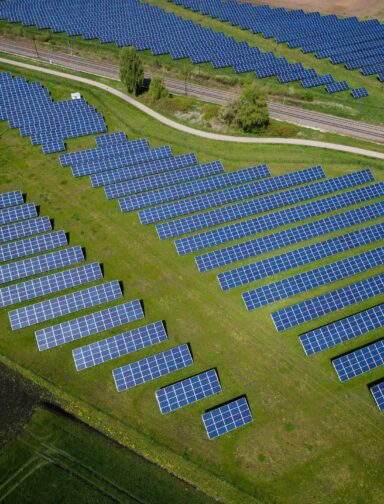At the heart of any solar sale is a great proposal. A compelling, personalized proposal that speaks directly to your customer’s needs gives you a real leg up on the competition. Likewise, a generic, text-heavy proposal that reads like a legal contract can put your sales team at a disadvantage.
But, what makes a great proposal? We had a roundtable discussion with a group of solar experts to answer that very question. Based on their advice, we developed the Solar Sales Playbook For Proposals That Close. Click below to download the full playbook.

In this blog, we’ll look at some of the highlights from the playbook to get you started.
Customize your proposal
Before you do anything, you need to know what type of buyer you’re dealing with. Someone looking for relief from a huge electric bill will want to see different things in their proposal than a homeowner looking to help cut their environmental impact.
Our research on the 5 Types of Solar Buyers is a great place to get a detailed look at the different categories of buyers that you’ll likely encounter. But, it’s tough to know exactly what any particular customer is looking for before you meet them and ask them some questions. Once you know their unique challenges and goals, you’re in a better spot to deliver a proposal that meets their specific needs.
The roundtable of sales experts says…
Delivering a customized, frictionless proposal process is as important to your prospective customer as it is for your sales reps. Equipping your sales team with smart software will empower them to:
- Make adjustments on the spot based on customer feedback
- Show the customer the cost adders, incentives, and discounts that are automatically built into the system
- Close with automated contract generation and integrated e-signature options
Highlight the finances
While every buyer is different, most people are concerned about system costs. With so many incentives, tax breaks, and other considerations, though, financing is also one of the things customers find most confusing.
Solar customers appreciate when a proposal includes information that helps them make sense of their options. You can help remove financial barriers for prospective customers by showing them federal and local incentives, as well as attractive loan options tailored to their needs.

The roundtable of experts says…
Use your proposal to position yourself as an informative teacher rather than a salesperson. By empathizing with your leads and working with them on their concerns, you will win their trust and leave a positive impression.
This means you’ll need to be able to answer a few questions accurately and honestly:
- How much will the system cost, all in?
- How much will the customer save over time?
- What are the details on the incentive types and loan options the customer may qualify for?
Be exceptional
We know, you are exceptional! Don’t be afraid to show it, and make sure you have software that lets you present your company’s differentiators in a compelling way.

The roundtable of experts says…
Your company’s value should be clearly spelled out in your solar sales proposals so your prospective customer doesn’t have to read between the lines. Be sure to highlight:
- Unique customer testimonials
- Warranties and other concrete benefits your company offers
- Experience, certifications, and other expertise your team brings to the table
In closing…
In the end, a great sales proposal that hits on all the questions and concerns each of your customers has helps you close more deals. Period.
This blog just scratched the surface of our experts’ advice on how to deliver proposals that close. To learn more details and strategies, be sure to get your copy of the full Solar Sales Playbook today.

The research behind the Playbook: What makes proposals succeed?
Here at Aurora, we want to help empower solar companies across the whole project lifecycle — from lead to completed project. Of course that means helping you design optimal solar projects faster and more easily. But, it also means helping you create stunning, personalized proposals so your proposed designs actually become reality.
We’re on a constant journey to discover the key factors that make proposals successful. First, we commissioned branding and marketing expert Katherine Glass to research the sales experiences of solar customers, to understand what drove their decisions about installing solar, and solar professionals to understand what elements they had observed to be important in proposals and the solar sales process more broadly.
Glass is the founder of SpringMark, a marketing and brand strategy firm. Before founding SpringMark, she worked for global creative consultancy Lippincott, where she helped shape the brands of major companies like Delta, Petco, and Starbucks.
In her research, Glass spoke with a selection of homeowners around the country who were at different stages in the solar sales process to understand the factors that influenced their decisions. Some had installed solar, some were in the process of installing solar, and others had considered installing solar but ultimately decided against it, providing a diversity of perspectives and experiences.
We then convened a roundtable session of seasoned solar professionals at our office to integrate insights from their sales experiences. Katherine facilitated the session and identified common themes and lessons about what makes proposals successful from the contractor perspective.

As the solar industry grows increasingly competitive, contractors need to think about how they can better communicate their value to potential customers. In addition to ensuring that your customers have an excellent experience with their installations (the best way to ensure positive word of mouth and customer referrals), incorporating these five principles into your proposals can help make them more successful. This way, when your conversations with a homeowner conclude, you can be confident that the proposal in their hand will stick in their mind.


